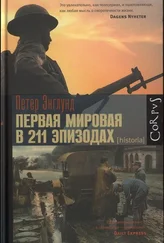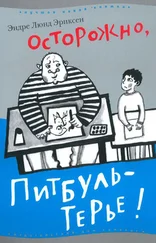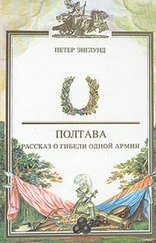In May 1993, a Czech mafioso and his bodyguard were cold-bloodedly executed in a car outside Plzeň in Western Bohemia. Nine months later, police arrested the suspected assassin — Jiří Kajínek, a notorious criminal in his late 30s — who was subsequently found guilty in the double murder and sentenced to life imprisonment.
Considering Kajínek’s criminal record, neither the verdict nor the life sentence was spectacular, so the prisoner was swiftly transported to the Mírov prison in Moravia, a former Habsburg fortress where the Czech Republic’s 20-odd lifetime inmates are kept. Because of its high and impenetrable walls and its location on the top of a steep hill, Mírov is commonly known as the Czech version of Alcatraz — an inescapable prison where dangerous convicts like Kajínek are supposed to rot for at least 25 years, until they are eligible for parole.
This scenario dramatically changed in October 2000, when Kajínek managed the unthinkable — to escape from the most heavily guarded prison in the country. Thanks to an amazing display of brains combined with muscles, Kajínek managed to divert his guards’ attention, get out of the barred window in his cell, slide on a home-made rope over a wide moat full of specially trained Doberman dogs, climb a six-meter tall wall — and then disappear into the forest beneath the fortress.
As one might expect, the incredible escape instantly brought Kajínek national fame. In the following weeks, when literally every single uniform in the country was combing the Czech countryside in search of the escaped prisoner, more and more people came to regard this common criminal as a national hero. Even when he was caught after 40 days on the run, he put up a stylish display: a video, which the police released to prove that they really had got him, showed how the athletic and naked Kajínek was overpowered in the bed in a Prague flat belonging to the wife of another Mírov prisoner. “What a pity he didn’t hide in my flat,” a female television reporter commented half-jokingly (see: Sex).
So all’s well that ends well? Not really. Kajínek was immediately transferred to another maximum security prison, where a cell was specially adapted to make sure he never again repeated his amazing stunt.

Photo © Jaroslav Fišer
Yet he certainly achieved what he wanted with the escape — to draw attention to his case. Kajínek himself admits that he is not an angel, but neither is he a murderer, and he swears he is not guilty of the crime that brought him to Mírov (after all, what else would you expect from a lifetime prisoner?). Even though police investigators and several judges insist he is guilty, the media regularly question the verdict. As late as January 2004, Czech journalists presented a so-far unknown witness that can allegedly prove Kajínek’s innocence.
The funny thing is that millions of Czechs seem to believe more in Kajínek and the media’s version than in the official assurances that he really is guilty.
Romanticism is certainly one part of the explanation — many Kajínek fans are simply confusing him with Harrison Ford or Count Monte Cristo. The other part is less amusing: many ordinary Czechs still nurture a strong and deeply rooted scepticismagainst the independence of the country’s judiciary, which for almost half a century allowed itself to be abused as an instrument of the Bolshevik tyrants (see: Horáková, Milada).
Some weeks before Czechs were to cast their ballots in the Parliament elections, in the summer of 1998, the conservative Civic Democratic Party (CDS) played one of its campaign trumps: at the Letná Plain, the bluff on Vltava’s left bank where the Bolsheviks (see: Communism) erected the world’slargest statue of Stalin in the 1950s, the Czech conservatives, in total earnestness, raised a 5-by-10 meter billboard featuring the face of their chairman Václav Klaus.
Thus, for the next several weeks a gigantic chairman Klaus, complete with his crew cut and close-cropped moustache, overlooked Prague from exactly the same spot as one of the most bloodstained (and definitely more moustached) tyrants in history.
This is, admittedly, a rare example of historic amnesia, but it is pretty illustrative as an expression of the cult that has surrounded Václav Klaus since the early 1990s:
Quite a few people in this country, many of them running small businesses, love and admire Klaus so intensely that they cease to perceive the real world. Others — probably outnumbered by the manic Klausophiles — pretend to be his ardent fans out of sheer opportunism (as a political godfather he secured them money, power or both). And then you have a smaller number of intellectuals who simply can’t stand the fellow, and do their utmost to forget that he in 2003 was elected the country’s president.
In many ways Václav Klaus is everything his predecessor Václav Havelisn’t. Contrary to Havel, who was born into a bourgeois family of prominent businesspeople, Klaus was born, in 1941, as the son of an ordinary civil servant. While the first Václav started a somewhat bohemiancareer as a self-educated and chain-smoking playwright, who in the 1970s bravely opposed the communist regime (see: Charter 77) and subsequently spent four years in jail that ruined his health, the latter excelled as a student of economics and as a sportsman. After several scholarships in the West, he spent the two decades of Bolshevik normalization after 1968 as an economist in the Czechoslovak State Bank and later in the Academy of Science.
By the time of the Velvet Revolutionin 1989, Klaus entered the political scene as one of those clever and adroit Czechs who had never confronted the Bolshevik regime officially (and thus had managed to pursue a professional career) while at the same time avoiding open collaboration in terms of Party membership.
This ultra-pragmatic record was certainly less heroic than Havel’s firm opposition, but it was not a tremendous drawback for a politicianat the start of the post-communist era. On the contrary, while Havel almost seemed larger than life, Klaus embodied the fate of millions of common Czechs who were neither Bolsheviks nor brave dissidents; only ordinary, uncourageous citizens who tried to live a happy life.
Thanks to his image as an ambitious commoner-cum-respected scientist (obviously, he was soon awarded with the academic titleProfessor of economics) and also his brilliant ability to sense exactly what people wanted to hear, Klaus’ political career got a flying start. He was the very man for the post of minister of finance in the first democratic government that emerged after the Velvet Revolution. He was, in 1991, the obvious founder and first chairman of “liberal-conservative” ODS, which won the Parliamentary elections a year later by a landslide, making him Czechoslovakia’s new Prime Minister.
The Klaus government’s battle cry was to effect radical economic reforms that would pull the country out of stagnation. Inspired by Maggie Thatcher and Milton Friedman, Klaus called for a mass privatisation of state industry and the introduction of a laissez-faire economy that in a decade or two would transform Czechoslovakia into Central Europe’sSwitzerland.
Today, seen in retrospect, it’s evident that Klaus was far too cautious to introduce reforms that would disturb the social equilibrium of the Bolshevik era. In reality, he promised the reform-minded part of the population the radical changes they longed for, while he calmed those who were scared about the future, because his government avoided any change that would hurt too much. Some observers have called the practical application of this strategy Bank Socialism (Klaus forced state-owned banks to pour bad loans into industrial giants controlled by semi-dubious oligarchs loyal to him), while others prefer Václav Havel’s term Mafia capitalism (Klaus’ voucher privatisation is estimated to have cost billions in frauds and stripped company assets).
Читать дальше









![Theresa Cheung - The Dream Dictionary from A to Z [Revised edition] - The Ultimate A–Z to Interpret the Secrets of Your Dreams](/books/692092/theresa-cheung-the-dream-dictionary-from-a-to-z-r-thumb.webp)



